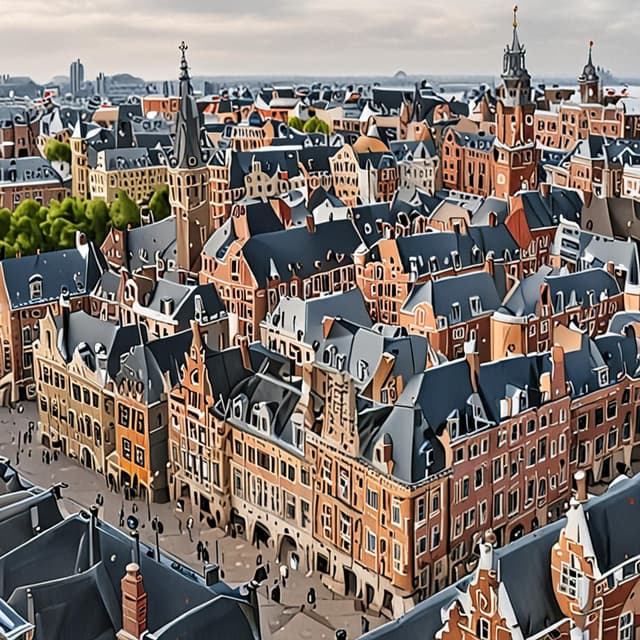
| Name | The Hague |
| Role | Central to Dutch foreign policy and diplomatic affairs |
| Type | Seat of government, political capital |
| Region | |
| Country | |
| Culture | Rich heritage in art, architecture, and Dutch tradition |
| Economy | Less commercially and financially influential than Amsterdam |
| Importance | Home to Dutch government, royal family, and international organizations |
| Native Name | 's-Gravenhage |
| Organizations | Hosts headquarters of entities like the International Court of Justice |
The Hague, officially known in Dutch as 's-Gravenhage, is the seat of government and the political capital of the Netherlands. Located on the North Sea coast in the province of South Holland, The Hague is home to the Dutch government, the royal family, and many national and international institutions, making it a central hub of politics and diplomacy in the country.
The origins of The Hague date back to the 13th century, when it emerged as a royal residence and eventually became the seat of the States General and the location of the Binnenhof, the parliamentary complex that houses the offices of the Dutch government. In the 17th and 18th centuries, The Hague was a flourishing center of Dutch Golden Age art and culture, with the city home to numerous palaces, gardens, and political institutions.
Unlike many other major Dutch cities, The Hague did not experience the same level of industrialization and commercial growth in the 19th and 20th centuries, as the political center of the country remained firmly rooted in the city. While Amsterdam rose to prominence as the financial and economic capital, The Hague retained its status as the political heart of the Netherlands.
The Hague is situated on the North Sea coast, approximately 50 kilometers (31 miles) southwest of Amsterdam. The city's historic center is characterized by its wide, tree-lined avenues, stately government buildings, and Dutch Golden Age architecture. Notable landmarks include the Binnenhof, the Mauritshuis art museum, and the picturesque Hofvijver lake.
The city has expanded considerably over the centuries, with residential and commercial districts developing around the historic core. However, The Hague has maintained a relatively compact, walkable urban layout, with a strong emphasis on public spaces, gardens, and cultural institutions.
As of 2020, The Hague has a population of around 525,000 within the city limits, and over 1 million in the greater metropolitan area. The city is home to a diverse population, with significant communities of diplomats, international civil servants, and foreign nationals working for the many international organizations based in The Hague.
While The Hague lacks the financial and commercial clout of Amsterdam, it remains an important economic center, with a focus on government, law, international relations, and technology. The city is home to the headquarters of numerous government ministries, international courts and tribunals, and various non-governmental organizations.
The Hague is renowned for its cultural heritage and is a major center for the arts in the Netherlands. The city is home to world-class museums, such as the Mauritshuis, which houses a renowned collection of Dutch Golden Age paintings, and the Buitenhof, a historic civic center that hosts various cultural events and festivals.
The Hague is also an important hub for international organizations and diplomacy. The city is the seat of the International Court of Justice, the Permanent Court of Arbitration, and numerous other international bodies, solidifying its status as a center of global governance and conflict resolution.
As a result of its rich history, architectural heritage, and role in international affairs, The Hague is a popular tourist destination, attracting visitors from around the world to explore its museums, historic sites, and vibrant cultural scene.